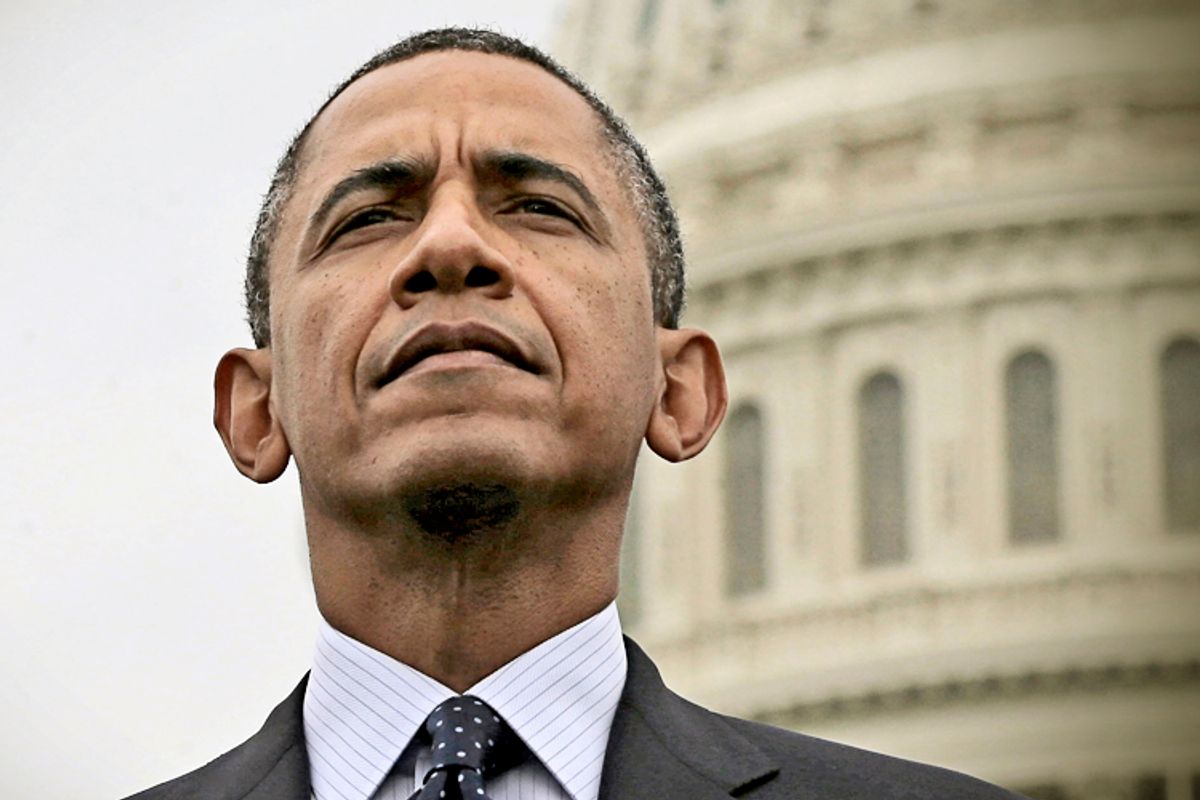Now we know for sure: The Obama administration has presided over the most thorough expansion of the domestic surveillance state of any U.S. presidency. Even as the nation was still absorbing the news, broken by Glenn Greenwald at the Guardian on Wednesday night, that the National Security Agency has been routinely collecting phone call records for millions of Americans, the Washington Post and the Guardian published articles revealing even broader government snooping powers: Since 2007, the NSA and the FBI have had the power to watch nearly every aspect of our online life as well.
The National Security Agency and the FBI are tapping directly into the central servers of nine leading U.S. Internet companies, extracting audio, video, photographs, e-mails, documents and connection logs that enable analysts to track a person’s movements and contacts over time.
The nine companies are Microsoft, Yahoo, Google, Facebook, PalTalk, AOL, Skype, YouTube, Apple. (PalTalk, according to the Post, "hosted significant traffic during the Arab Spring and in the ongoing Syrian civil war.")
The program is code-named PRISM, and while it was created during the administration of George W. Bush, the Post reports that it has experienced "exponential growth" under Obama.
A blistering, brutal editorial published by the New York Times before the Washington Post article broke noted the contradiction between Obama's words and deeds, recalling "when he said in 2007 that the Bush administration’s surveillance policy 'puts forward a false choice between the liberties we cherish and the security we provide.'" The Washington Post story, in conjuction with the Guardian give the lie to such rhetoric. The Obama administration has trampled over the liberties we cherish.
It's one thing to suspect and assume, as many privacy experts and government watchdogs have for years, that government intelligence agencies enjoy essentially unlimited access to all our electronic communications. It's another to have it confirmed in black and white. It's fair to say that very few of the people who voted for Barack Obama expected that one of his legacies was the effective end of privacy from government snooping.
But even this dark surveillance cloud has its silver lining.
First, kudos have to go to whoever leaked the information about both of the secret surveillance programs to the press. In a climate in which the government has made clear its intent to prosecute both whistle-blowers and the press, the decision to go public took guts.
Second, there's a notable absence in the list of nine Internet companies participating in the PRISM program: Twitter. The Washington Post article reports that Twitter "has cultivated a reputation for aggressive defense of its users’ privacy." There is now some real meat on the bones of that reputation. Can we hope for other Internet companies to follow Twitter's example?
UPDATE: Google, Facebook, and Apple are all denying that the government has "direct access" to their servers.



Shares